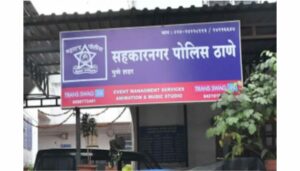Pune Unveils Preliminary Resilience Assessment to Determine Areas of Further Study Needed to Strengthen the City

PUNE, INDIA – Today, Pune and 100 Resilient Cities – Pioneered by the Rockefeller foundation (100RC)released Pune’s Preliminary Resilience Assessment (PRA), whichidentifies challenges and outlines three main areas of further study to build a resilient Pune. Pune ranks first in urban governance across 23 Indian cities and second in India for software exports. However, due tothe growing population, increasing expectations from citizens and complex institutional roles, the citycontinues to face challenges related to urban transportation, urban environmentand skills and livelihood-specific challenges under economic growth. These include acute shocks such as flooding at few locations and seasonal disease outbreak in some parts of the city, and chronic stresses that will potentially weaken Pune’s social fabric such asair and river pollution, inadequate public transportation, limited access to affordable housing andissues of solid waste management at disposal end. The PRA lays out key questions and identifies Urban Growth, Urban Environment and Urban Economy as areas for further study that will guide the city’s resilience building efforts moving forward.
Mr. Saurabh Rao, Municipal Commissioner, Pune Municipal Corporation, said: “This Preliminary Assessment is an honest look at where we are as a city today and begins to map a path forward to a brighter tomorrow. While we have much to be proud of as a city, it is only by recognizing our challenges and asking difficult questions about our future that we will be able to build strength for what the future may hold. Pune is one of the most important urban economies in India, but it is only by understanding our growth opportunities, taking a more deliberate approach to our growth and revitalizing our valuable natural resources that we will be able to remain attractive to investors, employers and the citizens based here.”
The Preliminary Resilience Assessment was developed following a comprehensive five-month stakeholder engagement and research process during which the Resilient Pune Office and steering committee surveyed hundreds of citizens, interviewed dozens of subject matter experts and formed five working groups to more deeply explore the shocks and stresses that are most pressing for Pune.
Mr. Mahesh Harhare, Chief Resilience Officer, Punesaid: “One of our first priorities was to ask citizens what challenges they faced in their day to day lives. The top answer was mobility or a limited ability to get around the city easily and affordably. This one issue has implications across our city in terms of air quality, health outcomes, access to jobs and housing. If we can take a more holistic approach to planning our future we will be able to address not only basic needs but build a healthier, more secure and more prosperous future for the people, organisations and institutions that call Pune home. The PRA helps us ask hard questions about how to do this and will guide us as we continue to develop our Resilience Strategy.”
Pune’s Preliminary Resilience Assessment identifies Urban Growth, Urban Environment and Urban Economy as key areas for further study. The PRA lays out key challenges and key questions the city will strive to answer to better understand the direction the direction the city’s planning efforts should take to build a stable and secure future:
– Urban Growth: How can we guide integrated and equitable growth in Pune?
o Mobility and access to affordable housing are key stresses for Pune and have never been guided by a unified agenda to help plan and manage growth in the city. Pune City’s footprint will double by 2020 driving a need for an integrated and equitable growth strategy. Improving community cohesion will be paramount as the city grows to accommodate increasing numbers of students, young professionals and migrant labourers.
– Urban Environment: How can we mainstream environmental planning and resource management in Pune?
o The conditions of the hills surrounding the city, the health of water bodies, solid waste management, air quality and flooding are all major concerns for Pune. Systemic challenges exacerbate these challenges and add to environmental degradation. Integrated environmental planning and incentivizing responsible behavior and stewardship of the environment will be key to ensuring the city can continue to provide critical services to communities and businesses alike.
– Urban Economy: How can we strengthen the economy and workforce capabilities in Pune?
o Employment and business opportunities are one of Pune’s strengths given the city’s diverse economic base and complementary knowledge economy. However, the city must be agile to remain competitive in a changing global economy that requires new and different skill sets in both high and low skilled industries. Investing in relevant training opportunities and encouraging entrepreneurship now will make it less vulnerable to changing economic conditions in future.
Mr. Saurabh Gaidhani, Associate Director, Asia Pacific, 100 Resilient Cities said:“Despite its relatively small size, Pune’s academic heritage, strong economy and historic and cultural importance make it a powerhouse in India’s urban landscape. However, like so many historic cities, it has overgrown its original boundaries in organic and largely unplanned ways. This has stressed the city’s built and natural infrastructure beyond capacity. Pune will only continue to grow and now faces emerging challenges from globalization, rapid urbanization and climate change. The resilience building work Pune is doing now is world class and 100RC is eager to continue working with Pune to translate its PRA into an actionable Resilience Strategy that will have real impact across the city.”
Pune joined the 100 Resilient Cities Network in 2016 and was one of only four cities in India to be selected from over 1,000 worldwide applicants.





